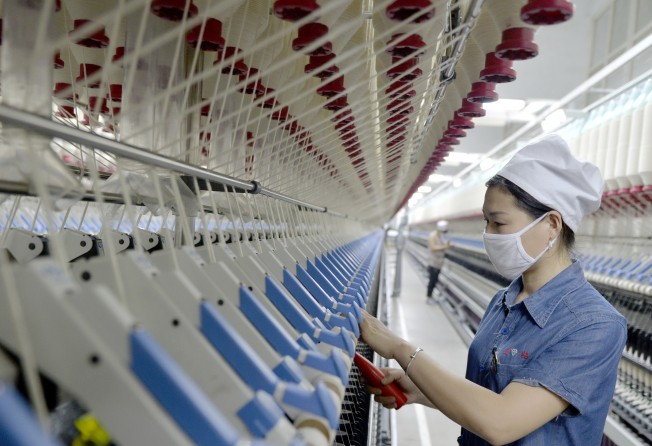Could this be the end for China’s notorious household registration system?
- Senior public security official flags plan to register people and provide services to them where they live – and not where they are born
- Immense barriers remain to change the hukou system that has divided urban and rural residents since the 1950s

China is reviewing its decades-old household registration system to enable migrant workers to stay in cities as the country grapples with an ageing population and a shrinking workforce.
Sun Lijun, deputy minister of public security, said on Thursday that his ministry is considering changes in policy to make it easier for the migrant workers to become the urban residents.
But any changes to the system would not apply to congested the megacities of Beijing, Shanghai, Guangzhou and Shenzhen that the authorities deem overpopulated, Sun said.
Under the “hukou” household registration system introduced the 1950s, Chinese people are classified as either rural or urban residents depending on where they were born.
Rural residents can enjoy certain land use rights but are not officially allowed to live in cities or have access to government services in those areas such as education and health care.
But as China’s economy developed, around 300 million rural residents migrated to cities to earn a living, putting the system under intense strain.
Now, under a national urbanisation policy, the authorities are trying to encourage about 100 million people living in the countryside to move to cities to help boost the economy.
Addressing a national symposium on social management, Sun stressed the need to come up with a new system in which household registration was based on the place in which the person spent the most time – not where they were born.
Chang An Jian, a social media account run by the Central Political and Legal Affairs Commission, China’s top legal affair’s body, supported change.
“No matter where you come from, you should be able to settle in most of China’s cities, choose the lifestyle you want, and no longer suffer such restrictions,” the site said in an editorial.
But there are many barriers to introducing such a system, according to Peking University sociology professor Lu Jiehua.
“Although the policy excludes megacities like Beijing and Shanghai, the cities that will have to take in more people will need to provide more basic public services including education, health care and housing. Lots of investment is needed,” Lu said.
Gu Shengzu, a member of the National People's Congress’s Standing Committee, has acknowledged publicly that there are major inequalities between urban and rural residents in more than 60 kinds of benefits.
Closing the gap in services for migrant workers would cost the government 100,000 yuan (US$ 14,900) per person, Gu estimated.
Retired Tsinghua University history professor Qin Hui said the unfairest part of the household registration system was its “bullying of the migrant poor”.
The system had led to inequality in human rights, property rights, and public services, Qin said.
The central government has been working to narrow the gaps. In 2016, the State Council, the cabinet, issued a document to allow more non-urban residents to settle in cities, and said it planned to transfer the hukou of more than 13 million people per year.
“According to the 13th five-year plan [for 2016-2020], 100 million people should be resettled [in cities], and there is just one year to go on that timetable. It will be very difficult to complete the task,” Lu said.
He said the hukou overhaul was a good idea to enable more migrants live in urban areas but there were administrative problems to overcome.
“This new policy is good. The difficulty in implementation is that some big cities have to solve the problem of resettlement as they face financial problems. Basic public services, education, health, housing, etcetera, all take money,” Lu said.
“To generate enthusiasm and to solve the issue of public finances ... we need to solve the problem of the relationship between central and local-level administrations.
“The goal of the next five-year plan should be to water down the household registration system and provide public services according to where people live.”